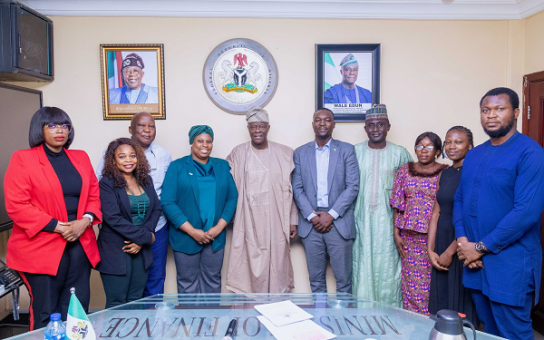The Federal Government has announced that it is taking bold steps to operationalize Nigeria’s Climate Change Fund (CCF), a strategic financial instrument designed to support the country’s climate action and sustainability efforts.
In a bid to ensure effective implementation, key financial institutions—the Nigeria Sovereign Investment Authority (NSIA), the Bank of Industry (BOI), and the Development Bank of Nigeria (DBN)—have been identified as potential managers of the fund.
This development was part of discussions held yesterday in Abuja between the Minister of Finance and Coordinating Minister of the Economy, Mr. Wale Edun, and the Director-General of the Nigeria Climate Change Council (NCCC), Dr. Nkiruka Madueke.
At the meeting, both parties agreed on the importance of aligning Nigeria’s broader economic planning with its climate commitments under international and domestic frameworks.
Read also: Report: Buildings in Myanmar go down days after earthquake
These include the national target of achieving net-zero greenhouse gas emissions, as well as the implementation of the third-generation Nationally Determined Contributions (NDCs).
Dr. Madueke pointed out that the Climate Change Fund remains significantly under-funded, thereby limiting the execution of critical climate projects and regulatory responsibilities established under the Climate Change Act.
She appealed for stronger support from the Ministry of Finance, adding that NSIA, BOI, and DBN have all shown readiness to manage the Fund once it becomes operational.
According to the NCCC Director-General, the council’s immediate priorities include finalizing a climate finance taxonomy to guide investors, advancing the development of a robust carbon market, and protecting Nigeria’s vast mangrove ecosystems, which are key to biodiversity preservation and carbon sequestration.
In response, the Finance Minister Wale Edun expressed his willingness to work closely with the Council to advance the climate agenda.
He urged the NCCC to present a clearly defined budget and project framework to enable swift government action and stimulate private sector participation.
Edun noted that integrating climate resilience into Nigeria’s economic blueprint was now essential for long-term development, especially in light of growing environmental vulnerabilities and shifting global investment flows.
Story was adapted from the Nation.
